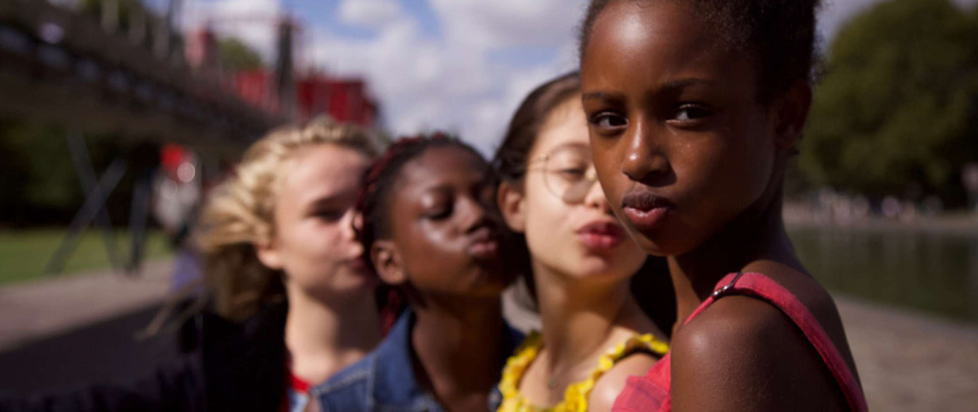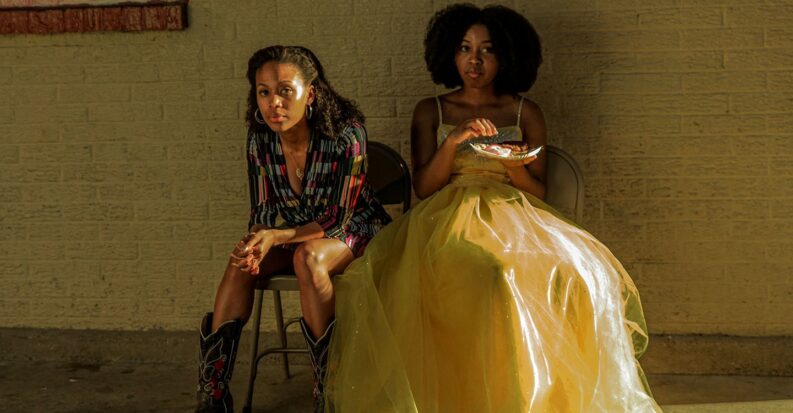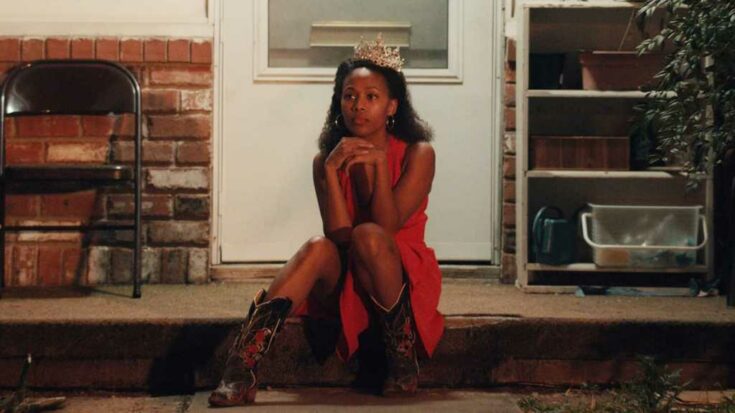
Cute

This column is a reprint from Unwinnable Monthly #176. If you like what you see, grab the magazine for less than ten dollars, or subscribe and get all future magazines for half price.
———
Kcab ti nur.
———
Cuteness isn’t something I entirely know what to do with. I’m mostly used to writing about dour stories or raw unfiltered sexuality in the face of overwhelming odds. But not even a time machine can resist the extradimensional power of a Theme. So here we are.
Kawaii culture and ideas of cuteness when employed in the West are folded into the pre-existing racial ideas (there is also a lot to be said of how it fits into the national politics of Japan and its neighbors but that’s not within my scope). I want to focus on how Black women fit into it, because Black womanhood is presented as the exact opposite of the Orientalized perspective on Japanese womanhood key to much of the Western consumption of the culture. Kawaii is consumed by the West as beauty without threat, whereas the very designation of Blackness is full of threat. Where the Orientalist ideal is presented as petite and passive, Black women are framed as brutal and full of bestial passion. So, what does it mean for a Black woman to try and be “cute?”
To unpack this dynamic, I’m focusing on two films, the first is Channing Godfrey Peoples’ Miss Juneteenth, which follows Turquoise (Nicole Behaire) as she tries to reign in her unruly daughter to give her a chance at winning a Miss Juneteenth pageant. The second is Maïmouna Doucouré’s Mignonnes (aka Cuties), a film about a young girl called Amy (Fathia Youssof) who joins a dance crew to try and make it big. The central thread in both films is exploring the idea that cuteness can be used as an escape route from oppressive social conditions.
Pageant culture is about heightened gender performance and (in most cases) fierce adherence to the social mores of the elite. In the specific context of the Black South, this is no less true. Miss Juneteenth presents this through the scenes of practiced dinners and occasions where the correct manners, cutlery and posture must be precisely maintained.

Much of this performance of gentleness and “ladylike” behavior is about trying to rise above stereotypes about Black women in the hope that through refined enough behaviors social conditions can be escaped. The idea is that with enough of these manners and rituals, a woman is ready to ascend and become a member of the Black petit bourgeoise (to go above that would of course be unseemly). In Miss Juneteenth, this abstract idea of social climbing is made even more direct when winning the titular pageant grants a full scholarship to an HBCU.
The use of targeted “cuteness” and gendered beauty practices for social climbing is also integral to Cuties. Amy (Fathia Youssof) exists in a context where Black people are often forced by their economic conditions to live in under-resourced and overpoliced neighborhoods, despite the country’s supposed race-blindness – a myth supported by a prohibition on collecting data on race/ethnicity/religion demographics. Much like in the US, there are very few routes for these Black people to achieve better living conditions, and one of the few routes for Black women specifically is through entertainment.
For Amy, her route is through dance, turning a source of childhood joy into a route of escape from racist bullying and her class position. Joining the titular dance squad means that she can gain a social status otherwise unavailable to her. However, the route she sees to succeed in this world relies on playing into the patriarchal requirements imposed upon all women but particularly sharply on Black women and girls. As Remicard Sereme writes, Black women in France are either deemed to be non-existent (especially with the invisibilization of Muslim women) or made into hypersexual objects. It’s through a child’s perspective on this hypersexual standard that Amy seeks to find freedom from her status in a way that becomes particularly uncomfortable given her age.
While there are different kinds of cuteness at play here, it ends up being two sides of the same coin. Whether leaning into hypersexuality or conservative womanhood, the navigation is still happening in relation to the expectations created by misogynoir. Both Doucouré and Channing Godfrey Peoples show that trying to game this system is doomed to fail for near everyone who pursues it.
In seeing Nicole Behaire’s sensitive performance, we are shown that this ascension through “cuteness” is nigh impossible to sustain when met with reality. She never went to the HBCU or rose into the petit bourgeoise, instead, she ended up as a teenage single mother, and therefore shut out of the potential high society circles before she could get the chance to enter. In Behaire’s performance, you can feel the constant conflict between her disdain for the gilded cage of the title and her wishes for her child’s future and the desire for her child to struggle less than she did.

Channing Godfrey Peoples is very deft with how she balances the complexities of this Black pageant culture. A worse director would show this culture as entirely reclamatory and liberatory – especially given these specific pageants surrounding a celebration of emancipation. Instead, she recognizes that pageantry and cuteness are not cured of their pitfalls just because they are exercised by Black people. At the same time there is still some joy to be found even in the fraught situation.
Doucouré’s repudiation of the pitfalls of this culture of cuteness as a social mobility device is a little more fraught. Her critique reaches its most scathing in the most controversial scene of the film, which shows the Cuties (who are all pre-teens) doing a very sexually provocative dance in provocative outfits. The scene cuts between the girls dancing and the audience’s reactions which exist as some complex mix of encouragement and outright disgust (particularly from the women in the crowd). It was this scene (and specifically the shots from it in the trailer distributed by Netflix) which made this film such a hot-button issue to the point where it was commented on by several US senators and a grand jury in Tyler Country, Texas tried (and failed) to prosecute Netflix over it. Cutting through the misogynoir-filled controversy, it is clear that Doucouré intends this scene to be grotesque, it is loud and in your face and it is clear there is no glory in this – I do however think that in trying too hard to provoke, she overplays her hand and loses some of the complex power.
Another complication in Cuties is how it positions Islam. There are points in the film where it feels we are being presented with hypersexuality as one misogynistic extreme and Islam (particularly traditional Islamic women’s clothing) as the other. These are the sort of conflations and positionings that have been rightfully critiqued by feminists like Francois Verges who recognize that the dichotomy is nonsense and feeds into Orientalist narratives that further marginalize Muslim women. Again, it’s not cut and dry within the film though, and it would be a mistake to try and flatten the work being done in a complex and very human text.
For both of the directors it’s clear that the wright of beauty politics and “cuteness” on Black women and girls is heavy, and the potential power to be gained is fickle. Yet in showing the deep humanity of these characters they’re able to forefront solidarity and love as stronger forces which can exist beyond patriarchal standards and colonial gender. Cuteness can’t and won’t be the savior, but maybe it can be fun along the way.
———
Oluwatayo Adewole is a writer, critic and performer. You can find her Twitter ramblings @naijaprince21, his poetry @tayowrites on Instagram and their performances across London.




